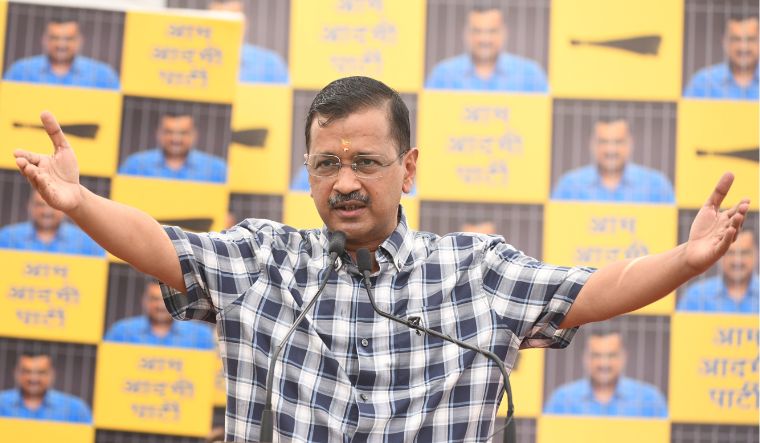The Lok Sabha elections are over, but the Delhi chief minister’s arrest issue in the Delhi excise policy case remains at the centre stage of the judicial slugfest between the Enforcement Directorate and Arvind Kejriwal. Whether the arrest violates the “basic structure and doctrine of free and fair election”, that became a campaign issue for the AAP in Delhi, found mention on Thursday when a Delhi district court granted bail to Kejriwal.
Kejriwal had applied for regular bail in the lower court even as he has challenged his arrest in the Supreme Court, which granted him interim bail for campaigning for Lok Sabha elections, but is yet to deliver its judgment on the issue of the legality of the arrest.
On Friday, the ED opposed the bail in High Court which decided to stay it till it takes a view on ED’s plea against it.
The legal tussle, meanwhile, touched upon various aspects including arrests of politicians during election season as well as the powers enjoyed by them that may interfere with ongoing investigations. The concerns raised by the ED revolved around tampering of evidence, destruction of digital records and influencing witnesses. The court’s stance on the issue is likely to have a bearing on similar cases as it touches upon this complex issue that has charged the political and public discourse over time where the AAP and other opposition parties have alleged misuse of central agencies for political reasons, particularly during the poll season.
The ED argued before the court that the “arrest of a person, however high he may be, for the commission of offence based on material, can never violate the concept of free and fair elections.”
The central agency says that if the argument is accepted, “politicians who are criminals would be granted immunity from arrest on the ground that he is required to canvass in the election.”
“On the contrary, treating a politician differently from an ordinary criminal in a matter of arrest would amount to arbitrary and irrational exercise of power of arrest which would violate the principle of equality enshrined under Article 14 of the Constitution,” the ED told the court.
In Kejriwal’s case, the ED argued that his arrest took place because the investigating officer was in possession of material that demanded his arrest under section 19 under PMLA. “A differential treatment in favour of a politician who is guilty of the offence of money laundering would violate "rule of law' - which would be a violation of the basic structure of the Constitution,” argued the ED.
The central agency has told the court that large-scale destruction of evidence in the alleged liquor scam case by several accused persons has made the task of investigation arduous. This includes over 170 mobile phones by 36 persons that stored digital data of handling of proceeds of crime, money trail connected with the proceeds of crime as well as non-cooperation of the CM during custody.
At the same time, the CM’s counsel has raised concerns about belated, coerced and contradictory statements of the co-accused.
The ED has countered by saying that it is the investigating officer who decides during the course of investigation after long hours of interrogation, when and what part of the witness is to be believed to satisfy the grounds for arresting a person under Section 19 of PMLA.
While granting bail to Kejriwal, the court said the ED has been silent on certain issues raised by Kejriwal’s counsel like not being named either by the CBI or the first case registered by the ED. The court also said allegations against him surfaced only after subsequent statements of certain co-accused and the CM is lying in judicial custody at the instance of the ED on the pretext of the investigation still going on.
But opposing the bail in the High Court, the ED submitted voluminous evidence stating that factually wrong submissions had been made by the CM’s counsel and drew attention not only to the material and digital evidence but also the money trail that allegedly led to expenditure in the AAP election campaign in Goa.
What makes the case more complex is that for the first time, the ED is referring to AAP as a “company” under section 70 of PMLA and held Kejriwal guilty on two counts- individual capacity for demanding Rs 100 crore and the AAP for using the money generated from proceeds of crime in the election campaign for their candidates and events. Till the High Court pronounces its order on ED’s plea to stay the bail, the issue of Kejriwal spending time in jail is expected to keep temperatures high in the capital.



